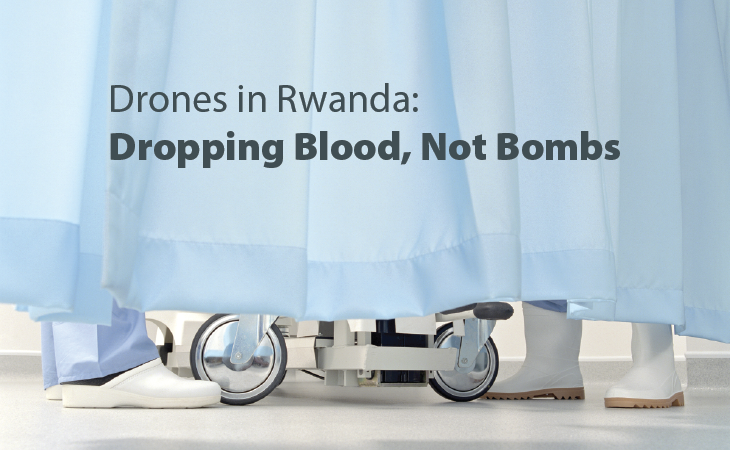This website uses cookies so that we can provide you with the best user experience possible. Cookie information is stored in your browser and performs functions such as recognising you when you return to our website and helping our team to understand which sections of the website you find most interesting and useful.
News
Drones in Rwanda: Dropping Blood, Not Bombs
Engineers at Silicon Valley tech company Zipline have developed drones that deliver urgently needed medical supplies, including blood, to isolated areas in Rwanda. This reduces the wait time for patients in need.
Half of the 60,000 units of blood delivered annually by road is used in life-saving transfusions for women who lose too much blood during childbirth. This method of delivery can take hours. In contrast, it took 5 minutes to deliver blood via drones to a clinic that is 33 miles from the nearest blood bank.
Delivering Blood Stored in Vinyl
Vinyl blood bags were a logical choice for Zipline’s drone delivery since vinyl is strong enough to be air-dropped safely.
In fact, vinyl has been a critical material in healthcare products and procedures for more than fifty years, including cardiac catheters, kidney dialysis, and blood bags. These products are regulated for safety in the U.S. by the Food and Drug Administration.
Vinyl’s unique characteristics meet the healthcare industry’s performance standards while also being durable, easily sterilized, and non-breakable. There are other characteristics that make the material uniquely suited for healthcare use, including that vinyl:
- Is optically clearer.
- Resists “necking down” (that is, it does not constrict when pulled).
- Can be steam-sterilized and frozen.
Vinyl blood bags also provide superior protection against hemolysis, the rupture or destruction of red blood cells, compared to other material choices.


